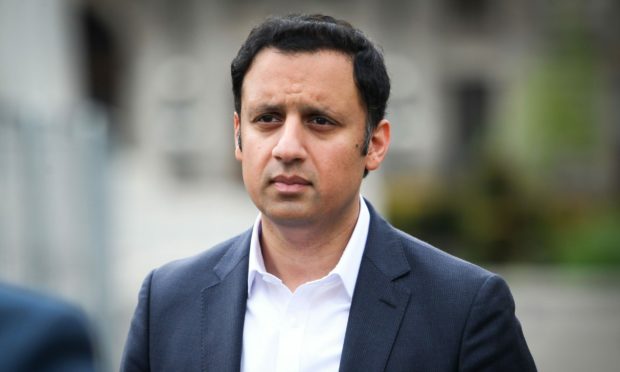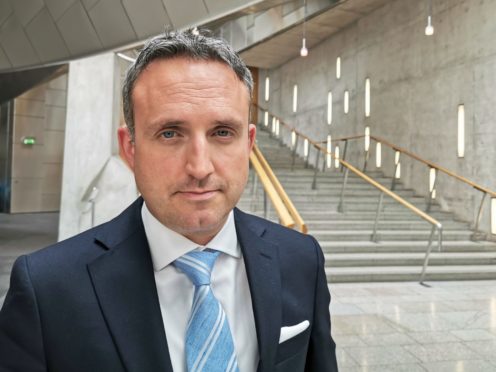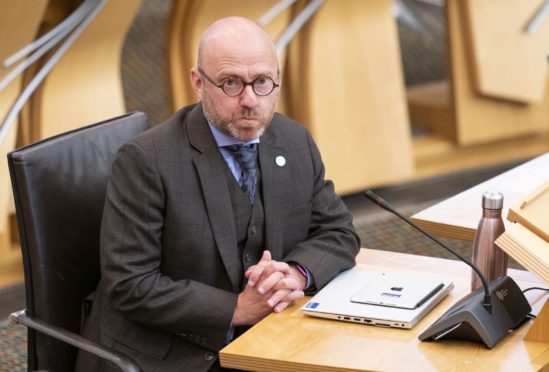Anas Sarwar says Scottish Labour will not support the Scottish Government’s proposals to introduce vaccine passports.
Last week First Minister Nicola Sturgeon confirmed the Scottish Parliament will debate whether or not to introduce certificates for people to prove they have had two doses of the coronavirus vaccine before they enter certain venues.
Should the proposals be approved, it would apply to nightclubs and adult entertainment venues, unseated indoor events of more than 500 people, unseated outdoor events of more than 4,000 people, and all events of more than 10,000 people.
Labour opposition not for opposition’s sake
However Scottish Labour says these proposals are more about an SNP “attempt to look in control” of the pandemic, and warns the mandatory use of vaccine passports may actually have the opposite effect of encouraging people to take up the jab.
Party leader Mr Sarwar says people should instead have to prove they have a negative Covid test to get into these venues rather than proving they are double jabbed.
He also says the government’s priority should be on fixing the “failing” Test and Protect system and tackling low vaccine uptake.
Mr Sarwar said: “Scottish Labour’s opposition to domestic vaccine passports is not opposition for opposition’s sake.
“We have supported the government at key moments throughout the pandemic.
“Nor is this an ideological opposition.
“This is simply about what works, what will make an actual difference and what will keep people safe.
“The decision from the government is more about trying to look in control of a virus that is clearly out of control.
“Increasing cases are causing pressures on the NHS and, even with vaccination, catching the virus can come with significant health risks for individuals and our population.
Scottish Labour will not support vaccine passports.
Read why here:https://t.co/cYozjVlvAH pic.twitter.com/8sPsIDvvzF
— Anas Sarwar (@AnasSarwar) September 5, 2021
“Research suggests that vaccine passports could actually be more likely to increase or entrench vaccine hesitancy among harder to reach groups.
“And there is a real risk that vaccine certification could lead to a false sense of security among people who can still transmit the virus.
“That’s why the immediate and fundamental focus of the government must be on fixing the failing Test and Protect system and pulling out all the stops to ensure maximum vaccine coverage.
“The government needs to fix our failing Test and Protect system and we need to strengthen the vaccine programme through greater use of mobile and walk-in vaccination centres, particularly in schools, at events and in areas of low vaccine coverage.”
Jabs are the way out, not vaccine passports
This comes after the Scottish Liberal Democrats say they will also oppose the plans, calling them “Covid ID cards”.
Party leader Alex Cole-Hamilton says introducing such measures to Scotland sets a “dangerous precedent”.
He said: “Scottish Liberal Democrats are fundamentally opposed to vaccine passports as a matter of principle.
“The rash introduction of this new system has practical problems too.
“It’s unclear how this will keep pace with booster jabs, or match vaccination programmes across borders.
“There is an endless list of questions for hospitality, young people, and every person in Scotland.
“Perhaps more importantly, for the first time in our lives people will have to present private medical information to access freedoms in our society.
“The first minister can offer no assurances about its limit – there’s no timescale and an open door to expansion.
“Vaccines are our way out of the pandemic, vaccine passports are not.”
Green Party could support vaccine plans
The Scottish Green Party meanwhile could make a U-turn on their position and back the SNP’s proposals.
Previously the party’s co-leader Patrick Harvie warned vaccine passports risked “making the social inequality that we face today even worse” and said people’s civil rights should not be dependent on their medical history.
However since the first minister’s announcement, he has said the Scottish Government will have a “single position” on the issue, with Nicola Sturgeon saying all members of government are expected to back the plans.
Last week Mr Harvie and his co-leader Lorna Slater both took up ministerial positions in the Scottish Government.
Scots face travel uncertainty as it’s revealed new Covid vaccine QR codes don’t work across Europe



